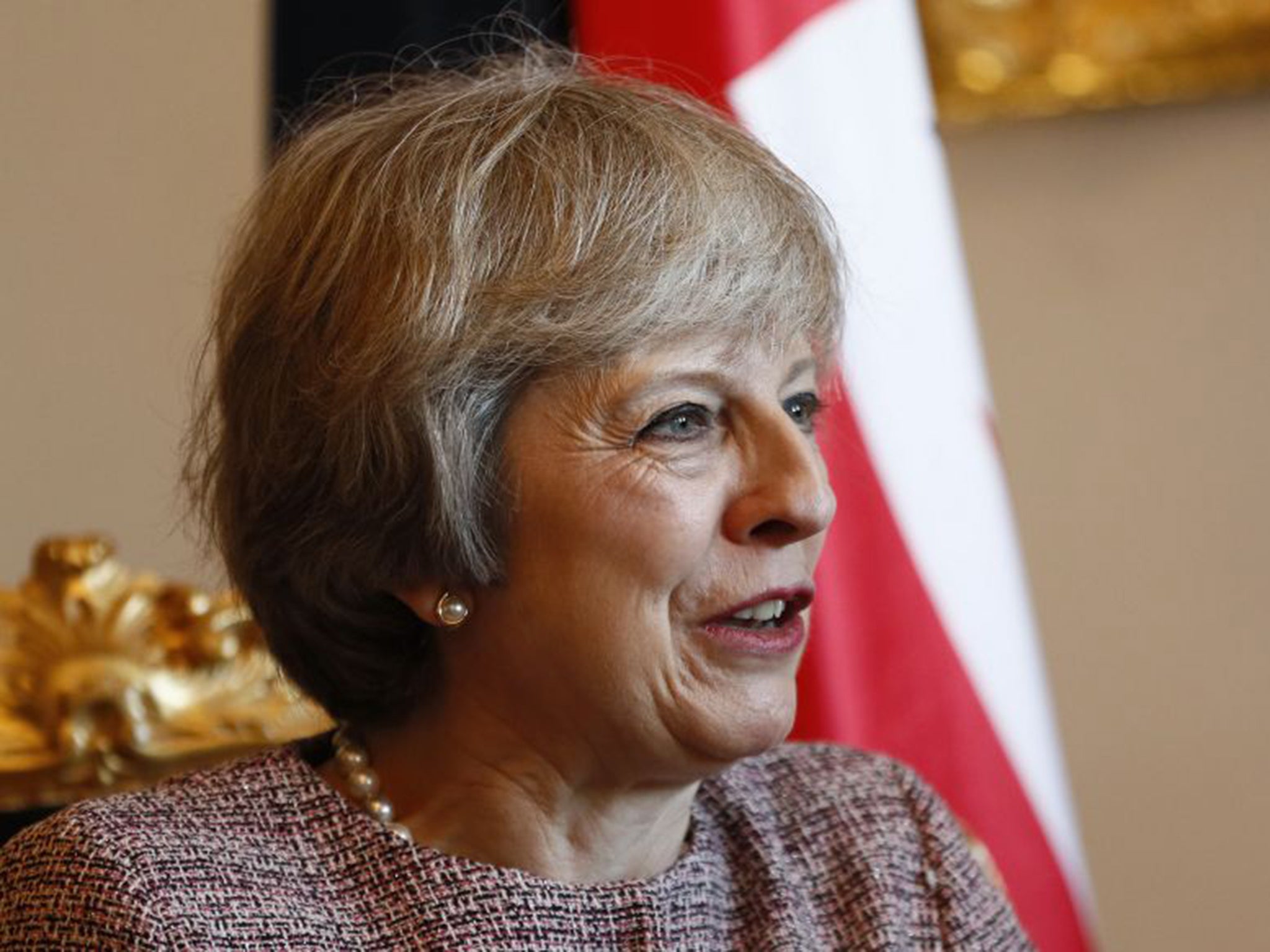Theresa May denies Angela Merkel holds key to Brexit talks
Mrs Merkel widely viewed as strongest influence on EU's approach to Britain's withdrawal

Your support helps us to tell the story
From reproductive rights to climate change to Big Tech, The Independent is on the ground when the story is developing. Whether it's investigating the financials of Elon Musk's pro-Trump PAC or producing our latest documentary, 'The A Word', which shines a light on the American women fighting for reproductive rights, we know how important it is to parse out the facts from the messaging.
At such a critical moment in US history, we need reporters on the ground. Your donation allows us to keep sending journalists to speak to both sides of the story.
The Independent is trusted by Americans across the entire political spectrum. And unlike many other quality news outlets, we choose not to lock Americans out of our reporting and analysis with paywalls. We believe quality journalism should be available to everyone, paid for by those who can afford it.
Your support makes all the difference.Theresa May has played down suggestions that German Chancellor Angela Merkel holds the key to the kind of Brexit Britain can expect to get.
As leader of the European Union's most populous and economically powerful country, Mrs Merkel is widely viewed as the strongest influence on the EU's approach to Brexit and her comments are scrutinised closely for clues to her attitude.
Brexiteers argue that she will want a liberal trade regime to preserve one of Germany's largest export markets for luxury products like cars, while others warn that Berlin's priority will be to send a signal to other EU states that quitting the 28-nation bloc has consequences.
She said on Wednesday that the UK would not be allowed to “cherry pick” from the four freedoms - including freedom of movement - required as a condition of single market membership.
Speaking to the Financial Times, Mrs May insisted it was important to deal with all 27 of the other EU states and not simply focus on Germany.
She acknowledged that the two-year negotiation - which MPs voted on Wednesday should be triggered by the end of March - will not be “easy” and acknowledged that the remaining EU countries do not want to see a repeat of the June 23 Leave vote in other member states.
Discussing the role of Mrs Merkel - who faces a re-election battle in the autumn of 2017 - in the Brexit process, Mrs May said: “I think it's also important to build a relationship with others sitting around the European table. There are 27 member states which will be negotiating.”
She suggested the atmosphere in talks will be tense: “They don't want to see others looking to break away and to vote to leave in the way the UK has done. Things will be said. I think it's important for us to build up the relationship with the people we're negotiating with.”
And she added: “What I've been saying to people is I want to see as smooth and orderly a process as possible. Of course, it's going to be complex because there's a lot to deal with. You're not a member of something for 40-odd years and then it's easy.”
There have been suggestions that Mrs May should delay the invocation of Article 50 of the EU treaties - which kicks off the two-year withdrawal negotiation - until the end of 2017, after the German vote and the presidential poll in France.
But this idea was given short shrift in the House of Commons by Brexit Secretary David Davis, who pointed out there were at least 15 elections scheduled to take place in Europe during the negotiation period.
Mrs May told the FT: “It's important that we don't leave it for too long, otherwise people will lose faith in their politicians, they'll think that we're trying to pull the wool over their eyes.”
In a wide-ranging interview looking at her first six months as premier, Mrs May said she had tried to encourage a “much more open and free discussion” about policy among Cabinet ministers, reviving the system of sub-committees to take decisions in a more formal way than her predecessor David Cameron.
She once named Elizabeth I as the historical figure she most identified with, but baulked at the idea that International Trade Secretary Liam Fox could be her Francis Drake, joking: “Think about the tights.”
And she brushed off suggestions that she exerted control over Tory MPs by flirting with them, after telling self-confessed “fat, middle-aged male” Richard Bacon to “come up and see me some time” at Prime Minister's Questions. “Oh, perish the thought,” she said, adding: “I saw him yesterday. He said he had tried to lose a little weight.”
After accusations that being photographed in £1,000 leather trousers made her look out of touch, Mrs May insisted she was not bothered by commentary about her clothes.
“Do I worry about people focusing on what I wear? No,” she said. “There's a story that might illustrate why. A few years ago I got into a lift in the House of Commons with a young woman who happened to be wearing a nice pair of shoes and I said: 'Oh, nice shoes.' And she said she liked my shoes as well. And then she looked at me and said: 'Your shoes got me into politics'.
“Something that can make people feel that they can approach a politician, or that politicians are like them, not some different species, I think is very important.”
PA
Join our commenting forum
Join thought-provoking conversations, follow other Independent readers and see their replies
Comments